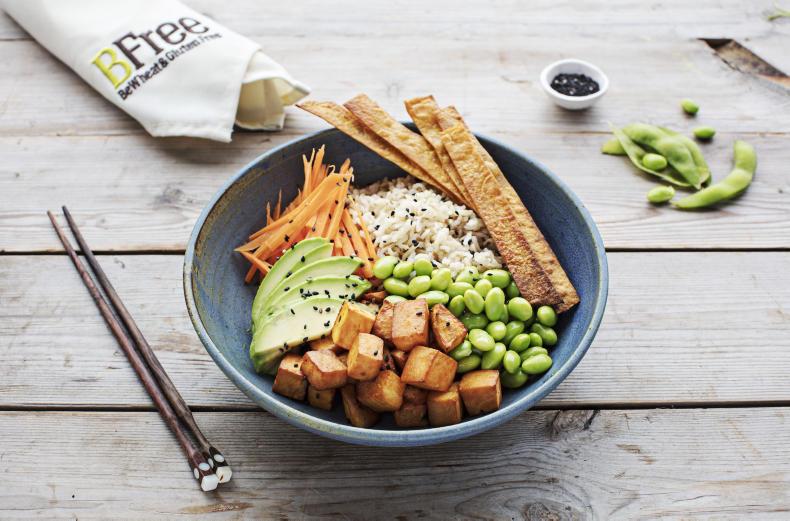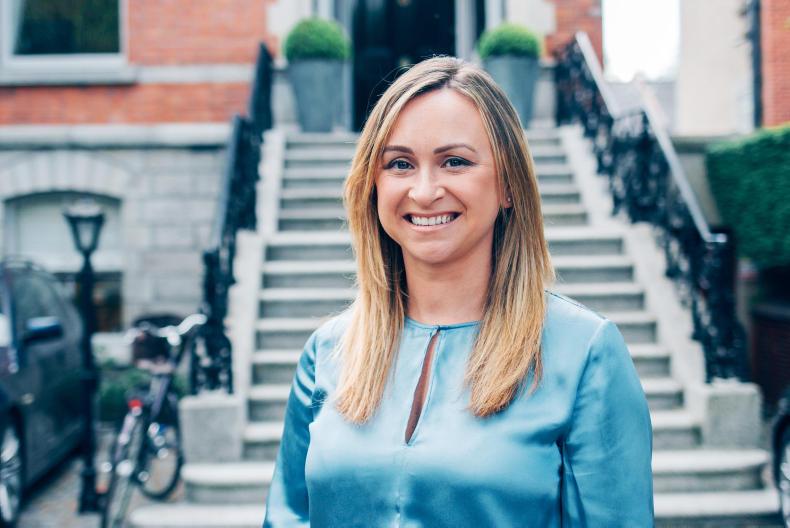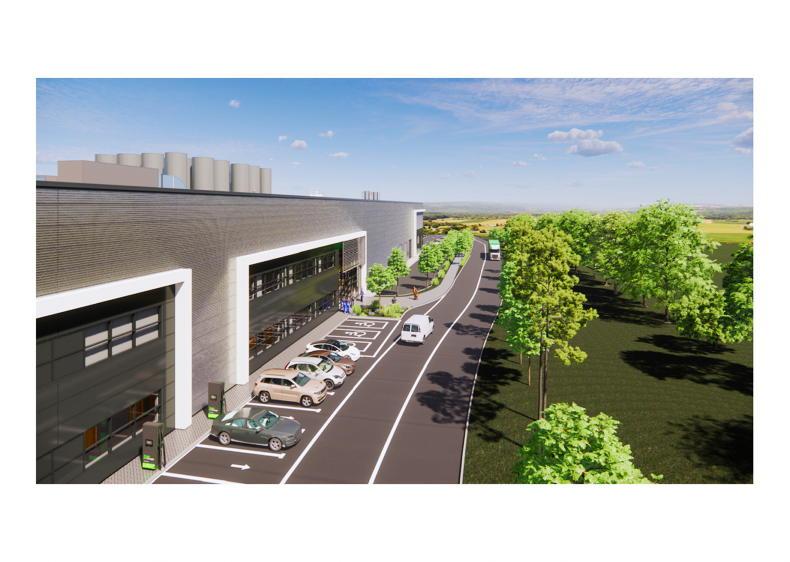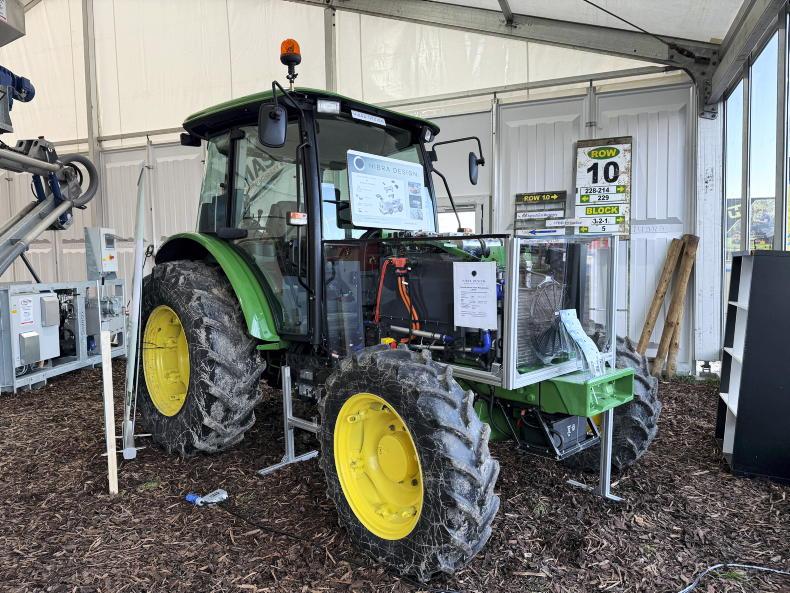Research and development (R&D) is a luxury many businesses in the food industry simply cannot afford. Profit margins are thin thanks to the highly competitive retail sector and the return on such an investment is not always obvious.
However, for BFree Foods, a company which sells a range of gluten-free and soya-free products such as bread, wraps, pittas, bagels and crackers, continued investment in R&D is essential.
BFree was founded in 2010 by Ronan McNamee, who originally developed the Cuisine de France brand before selling it to IAWS in the late 1990s.

While relatively young, the company has already carved out a 10% share of the free-from bread market in the UK and has coast-to-coast listings in the US with supermarket giants including Walmart, Whole Foods, Kroger and CostCo.
From a standing start, the US now accounts for over 50% of BFree’s €24m in sales for 2018, while the UK market accounts for about 30%.
The company also has landed a listing with Woolworth’s supermarket chain in Australia as well as listings in Scandinavia and the Middle East.
Alex Murphy, who is managing director of BFree, joined the company from the start having previously worked with McNamee in Cuisine de France.
“Ronan got in touch with me in 2010 to help him explore a number of opportunities in the healthy bakery category,” says Murphy.
“We looked at a number of things but eventually focused on a gluten-free business.

"We then spent 18 months in research in UCC to create a gluten-free formulation that tasted and acted like normal bread.”
The research with UCC eventually yielded two products – a brown and a white loaf – which were very similar to normal bread in terms of visuals and texture.
However, the company wanted to go a step further and make the product as appealing to as wide a consumer base as possible.
BFree has developed a range of products from ingredients such as peas, apples and potatoes in order to give its bread or wraps functionality, flavour and enhance the product nutritionally.
“There’s no denying that gluten-free is niche. But we’re trying to open up the market more and offer a product that appeals to all consumers,” says Murphy.
While the business is growing rapidly – sales in 2017 grew by more than a third (+34%) to hit €19.4m and 2018 sales are on track to hit €24m – BFree’s core business is still built on repeat customers who can’t eat gluten.
“When we were doing our market research we noticed that gluten-free offerings on supermarket shelves had very medicinal tones.
"We wanted to make a brand that was not about being sick but about enjoying food.
"We also made sure it was a brand that could extend to other categories and not just bread,” says Murphy.
Spending 18 months in research and product development may seem an eternity for a startup food business but, reflecting on it, Murphy now sees it was the best thing the company ever did as it can use the knowledge accumulated in that period as a base from which to build other products.

And build new products it must. According to Murphy, the average life cycle of some of the company’s products can be just 18 to 24 months.
“The life cycle on our products can be quite short.
"We get really excited about some of the new products or categories we’re in but it starts slowing down rapidly because people are always switching their pattern and trying new things all of the time,” says Murphy.
“You always have to be on your toes because what the consumer wants from a healthy food lifestyle can change so fast.
"So it’s our job to keep on top of that and lead the gluten-free category in terms of what’s the next big thing.”
To continue at this pace, BFree has a relentless focus on R&D and new product development.

The company approached Enterprise Ireland to find a way to speed up the product innovation in the hope of opening up new markets and sales channels.
“Because we contract-manufacture all our products and don’t own any factories, it’s really hard to get your hands dirty and try new recipes or formulations. We were going around trying to get line time to trial new recipes, which wasn’t fast enough to keep up with demand of sales,” adds Murphy.
With the help of Enterprise Ireland, BFree now occupies an incubation unit at the consumer foods division at Teagasc Ashtown to trial new products and formulations in a scaled down facility that replicates the processes used in larger factories.
The Ashtown facility allows the companies to work with smaller-scale ovens, mixers, provers, tortilla machines and pitta lines and trial new products.
“We now have five full-time employees out in Ashtown with the sole purpose of creating new recipes.
"New product development is key for us and gets us into new markets. It’s the backbone of this company,” says Murphy.
Research and development (R&D) is a luxury many businesses in the food industry simply cannot afford. Profit margins are thin thanks to the highly competitive retail sector and the return on such an investment is not always obvious.
However, for BFree Foods, a company which sells a range of gluten-free and soya-free products such as bread, wraps, pittas, bagels and crackers, continued investment in R&D is essential.
BFree was founded in 2010 by Ronan McNamee, who originally developed the Cuisine de France brand before selling it to IAWS in the late 1990s.

While relatively young, the company has already carved out a 10% share of the free-from bread market in the UK and has coast-to-coast listings in the US with supermarket giants including Walmart, Whole Foods, Kroger and CostCo.
From a standing start, the US now accounts for over 50% of BFree’s €24m in sales for 2018, while the UK market accounts for about 30%.
The company also has landed a listing with Woolworth’s supermarket chain in Australia as well as listings in Scandinavia and the Middle East.
Alex Murphy, who is managing director of BFree, joined the company from the start having previously worked with McNamee in Cuisine de France.
“Ronan got in touch with me in 2010 to help him explore a number of opportunities in the healthy bakery category,” says Murphy.
“We looked at a number of things but eventually focused on a gluten-free business.

"We then spent 18 months in research in UCC to create a gluten-free formulation that tasted and acted like normal bread.”
The research with UCC eventually yielded two products – a brown and a white loaf – which were very similar to normal bread in terms of visuals and texture.
However, the company wanted to go a step further and make the product as appealing to as wide a consumer base as possible.
BFree has developed a range of products from ingredients such as peas, apples and potatoes in order to give its bread or wraps functionality, flavour and enhance the product nutritionally.
“There’s no denying that gluten-free is niche. But we’re trying to open up the market more and offer a product that appeals to all consumers,” says Murphy.
While the business is growing rapidly – sales in 2017 grew by more than a third (+34%) to hit €19.4m and 2018 sales are on track to hit €24m – BFree’s core business is still built on repeat customers who can’t eat gluten.
“When we were doing our market research we noticed that gluten-free offerings on supermarket shelves had very medicinal tones.
"We wanted to make a brand that was not about being sick but about enjoying food.
"We also made sure it was a brand that could extend to other categories and not just bread,” says Murphy.
Spending 18 months in research and product development may seem an eternity for a startup food business but, reflecting on it, Murphy now sees it was the best thing the company ever did as it can use the knowledge accumulated in that period as a base from which to build other products.

And build new products it must. According to Murphy, the average life cycle of some of the company’s products can be just 18 to 24 months.
“The life cycle on our products can be quite short.
"We get really excited about some of the new products or categories we’re in but it starts slowing down rapidly because people are always switching their pattern and trying new things all of the time,” says Murphy.
“You always have to be on your toes because what the consumer wants from a healthy food lifestyle can change so fast.
"So it’s our job to keep on top of that and lead the gluten-free category in terms of what’s the next big thing.”
To continue at this pace, BFree has a relentless focus on R&D and new product development.

The company approached Enterprise Ireland to find a way to speed up the product innovation in the hope of opening up new markets and sales channels.
“Because we contract-manufacture all our products and don’t own any factories, it’s really hard to get your hands dirty and try new recipes or formulations. We were going around trying to get line time to trial new recipes, which wasn’t fast enough to keep up with demand of sales,” adds Murphy.
With the help of Enterprise Ireland, BFree now occupies an incubation unit at the consumer foods division at Teagasc Ashtown to trial new products and formulations in a scaled down facility that replicates the processes used in larger factories.
The Ashtown facility allows the companies to work with smaller-scale ovens, mixers, provers, tortilla machines and pitta lines and trial new products.
“We now have five full-time employees out in Ashtown with the sole purpose of creating new recipes.
"New product development is key for us and gets us into new markets. It’s the backbone of this company,” says Murphy.













SHARING OPTIONS